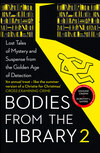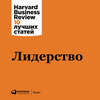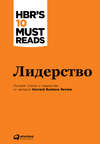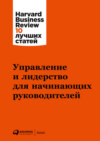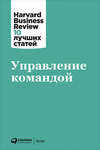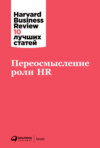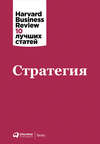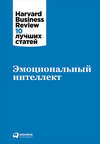Читать книгу: «Bodies from the Library 2», страница 5
‘Wait a minute!’ he cried. ‘I think I can explain.’
They all stared at him. Carol was astonished at the change in the lawyer’s appearance. Behind the pince-nez his pale eyes were bright with a strange expression of alarm. His cheeks were ashen white.
‘This threat is serious—terribly serious. Some of us are in real danger. We—’ his voice was high, breathless. ‘As Mr Rowley’s lawyer, I have no right to make a statement. But I can see no alternative. This is a question of life or …’
But he never finished his sentence—for, suddenly, without the slightest warning, the lights in the president’s office went out, plunging the room into swift, blinding darkness.
With the sudden descent of darkness, Carol felt a stab of alarm. What had Mr Whitfield been going to say? Why …? Around her the others were moving confusedly. There were voices calling out; arms brushing against her. But she could think only of this darkness. The lights, she knew, were controlled from the floor itself. They could not have turned them off from downstairs. It must have happened here. Could it—could it have been deliberate?
lnstinctively she groped her way to the switch. When she reached it, someone else was already there. She heard a click and her fingers touched the rough material of a coat.
‘The switch doesn’t work.’ It was Miles’s casual voice, close to her ear. ‘Fuse must have gone.’
‘Most annoying.’ Mr Rowley’s voice rose above the clamour, weakly querulous. ‘Where is Miss Thorne? Perhaps she—’
‘Miss Thorne’s here.’ So Miles had sensed it was her next to him there in the darkness. ‘I’m afraid even the efficient Miss Thorne can’t do much. If the fuse’s gone, all this side of the floor will be in darkness. And the main office, too.’
‘Better move over to my office.’ Peter’s suggestion was calm and steady. ‘It’s on the other circuit.’
There was a general movement towards the door. Carol felt Miles’s warm fingers slipping down her arm and closing around her hand. He was drawing her forward.
‘Christmas Eve with you in a dark office; now New Year’s Eve,’ he whispered. ‘I seem to be lucky with Eves.’
Carol would have been glad to have anyone else near her; there was something unnerving about Miles. This enforced intimacy seemed part of the crazy evening—part of its intangible menace. She tried to pull her arm away, but he wouldn’t release his hold, he was pressing it close against him, so close that it hurt.
At the rear of the uncertain little procession, they passed out into the main office which separated them from the group of private offices on the east side of the building. Miles had been right. All the lights here had gone, too. It was profoundly dark.
Peter hurried ahead. In a few moments a beam of light, filtering towards them over the tops of the desks, showed that he had snapped down the switch in his office.
Thank heaven there was nothing wrong with the fuses on that circuit!
In a minute they were all hovering anxiously round the desk in Peter’s smaller office, blinking at the unaccustomed brightness.
‘Well, Mr Whitfield—’ Peter’s voice was abrupt, jerky—‘you had something very important to tell us and …’
He broke off. Carol looked round quickly and saw what was wrong.
The lawyer was not in the room.
There was a murmur of startled comment. Mr Rowley glanced at the open door and then at Carol.
‘Perhaps you would ask Mr Whitfield to come here, Mss Thorne,’ he said curtly. ‘I have no idea what he was going to say, but it’s getting late and …’
She moved to the door, the president’s voice trailing impatiently after her as she hurried out again into the main office—away from the beam of light.
It was somehow uncanny being in the darkness alone. As quickly as possible, she retraced her steps to Mr Rowley’s office and paused at the door.
‘Mr Whitfield.’
There was no sound. She crossed the threshold. Was this dark cavernous room really the old familiar office where she had scribbled so many miles of shorthand notes?’
‘Mr Whitfield!’ she called again.
She was a little frightened now. There was no use trying to kid herself. Mr Whitfield must be here. He couldn’t have slipped away. Some of us are in very real danger. She tried to keep back the crazy thoughts that were invading her brain. They were absurd, ludicrous. And yet, there it was, that phrase from the memorandum, writing itself across the darkness in front of her.
‘… exit before midnight …’
‘Mr Whitfield!’
Step by step, she moved forward. She stumbled against a chair—another. And then her foot touched something lying on the carpet. Instantly she froze. The darkness around her seemed to stir.
She forced herself to bend, to touch that thing with her finger. It was hard, shiny—the leather of a shoe. Her hand moved, groping through the darkness. It touched something else, something soft—limp.
Carol knew what it was—knew with absolute certainty. Her fingers had touched a human hand.
At first she just stood there, numbed by the shock. She could only think: I have touched a dead man.
And then she heard her own voice. She hardly recognized it, it sounded so small and lost. She was calling:
‘Quick—Mr Rowley. Come quick,’
She could hear footsteps, faint and then nearer—hurrying. In a few seconds there were voices, rustlings, movements all round her in the darkness. A hand gripped her arm, and Peter’s voice, low, urgent, was asking:
‘Carol, what is it? What’s the matter?’
She felt overwhelmingly grateful for Peter. He was so real, so alive after—after that dead thing. Thank God, she wasn’t going to faint.
‘It’s—it’s someone,’ she faltered. ‘Lying there in front of me. I felt his hand. I—I think he’s …’
The others were all pressing round now, stifling her by their nearness. Someone struck a match. It was Miles. Carol could see his dark, high-cheekboned face—the only illuminated thing in that room. Then another match was struck and another. The little troop of flames lighted up the carpet in front of her.
Mechanically her gaze moved downward. She could see them now—the shoe and the hand. Somehow they weren’t so ghastly now she could see them. But it was all ghastly enough.
Mr Whitfield was lying there, slumped beneath the desk—looking pathetically small and unobtrusive, with his fingers still clutched around his briefcase. The matchlight gleamed on his pince-nez, casting strange little rays across his face. The matchlight caught something else, too. Still adorned by the crumpled sheet from the calendar, the shining steel handle of Mr Rowley’s paper knife protruded from the lawyer’s waistcoat, just above the heart.
Matches flashed and lingered like slow-motion fireflies. Carol caught stray images of people round her—Mr Rowley’s haggard face, blank and horrified; Mr Druten’s black hair and his eyes, wide and bright beneath the thick brows.
Peter had dropped to his knees and was bending over the body. Carol waited for him to speak, but she knew before he said it what it would be.
‘Dead.’
‘Murdered! And—and he was one of the largest shareholders.’ Miss Gregg’s tone was oddly strangled. ‘So he actually means what he said—the man who wrote the letter.’
A fresh sputter of matches. And then Peter’s voice again, suddenly different.
‘Look!’
Rapidly his fingers were smoothing out the sheet from the calendar which, still impaled on the knife, was half thrust into the wound. With the others, Carol peered down in the uncertain matchlight. She saw at once what he meant.
The date which the president had speared during the meeting had been December 31. Now, glaring up at them in bold black print was:
JANUARY
1
At the furthermost edge of the arc of light, Carol could just see the loose-leaf calendar for the new year on the desk. It showed January 2.
‘You see—’ Peter’s voice rose again, steady but very grim—‘he put it there, the murderer. Number One. He meant us to know that Mr Whitfield was the first—that there will be others …’
Gradually Carol’s mind began to take in the full implications of this appalling thing. The person who had typed out that note must somehow have fused the lights on this circuit and crept into the room in the consequent confusion. He was carrying out his incredible threat. If enough of the large shareholders were murdered before midnight when the merger became valid, there would have to be a second vote. Mr Whitfield had carried ten thousand of the hundred thousand shares outstanding. He had been the first to go.
But who could be doing this? Who could have this insane hatred of the merger? Why the macabre complication of the calendar slip, speared on the knife?
The last match had flickered out now and no one seemed to think to light another. There was a long, helpless silence. Then Carol heard the familiar clatter of the telephone receiver and Mr Rowley’s distracted voice at the desk, shouting:
‘Hallo, hallo, give me the police station at once. Hallo—’
‘You won’t get any reply, Mr Rowley,’ Carol said. ‘The operator left the switchboard at five.’
‘Operator?’ echoed the president. ‘Oh, yes, of course. Well—’
‘I’ll try and work the switchboard,’ offered Carol.
‘Yes, yes. Thanks, Miss Thorne.’
‘You’re not going alone, Carol,’ cut in Peter’s voice. ‘I’m coming with you. None of us must touch anything,’ he ordered. ‘We’ve got to leave everything exactly as we found it for the police. There may be fingerprints.’
All this seemed part of the nightmare—to hear voices and to see nothing. Somehow Carol found Peter and they were groping their way out into the main office.
His arm was round her, strong, protective.
‘Oh, Peter, isn’t it ghastly? What—what are we going to do?’
‘Call the police,’ he said grimly. ‘And get away from this darn place as quickly as possible.’
The switchboard lay in a corner of the main office, close to the lift shaft. They found their way to it with nothing to guide them but the faint light emanating from Peter’s distant office.
Carol sat down at the board, struggling to remember what little she knew about it. She put on the earphones and started to push in plug after plug.
‘Hallo—hallo …’
One plug after another. She worked with growing anxiety. But it was no use. The instrument seemed absolutely dead.
The others had left Mr Rowley’s office now. They were all crowding round her in the darkness as though none of them could bear to have the group divided.
‘I’m sorry, Mr Rowley,’ she said at length. ‘I’m afraid I can’t work it.’
There was a spurt of light. Carol saw Miles Shenton with a cigarette lighter cupped in his hand. He was bending forward, peering behind the switchboard. He gave a low whistle.
‘I’m not surprised Miss Thorne can’t work it. The wires are cut—all of them.’
‘Cut!’ echoed Miss Gregg weakly. ‘You mean deliberately?’
‘Deliberately and most competently. I doubt if even a regular electrician could fix them before midnight.’
Once again a strained silence descended on the darkness. Finally, Mr Rowley’s voice rose, hoarse, uncertain.
‘Then we must use the lift. Go down to the ground floor, Peter, and tell the night watchman—’
‘I’ve been ringing the buzzer, sir. Nothing happens.’
‘It’s no use anyway,’ said Carol faintly. ‘The tower lift stopped running at six. The man wouldn’t stay. There’s no one to work it.’
‘But—but what can we do?’
‘The fire stairs,’ said Carol. ‘We’ll have to walk down to the main building and take the regular lift there.’
Her words galvanized the others into action. They all started to hurry back through the main office, stumbling over chairs and desks. Carol felt herself pushed along with the rest of them.
They reached the door to the stairs. Someone struck a match. Miss Gregg gripped the handle and pushed. Nothing happened. She pushed again and then gave a little sob.
‘It’s locked.’
‘But it can’t be,’ said Marcia Leland’s cool voice. ‘A fire escape door can’t be locked. It’s against the law.’
More matches. Peter tried. Then Miles. They all pushed together feverishly. But it did not give. Peter dropped to his knees, peering under the door in the flickering matchlight. He looked up, his face strained, almost gaunt.
‘It must be wedged,’ he said ‘Wedged from outside. We’ll never open it.’
For the first time Carol felt real panic invading her. This was all part of the plan then—telephone cut, door jammed. They were to be shut up there in the darkness until the murderer had achieved his mad purpose.
‘But the fire alarm.’ It was an unfamiliar voice—Mr Druten’s. ‘There must be a fire alarm.’
Carol answered, ‘It’s outside the door—on the fire tower. We can’t get to it.’
The others were standing absolutely still now in the darkness. She could sense they were like herself—stunned by the ruthless deliberation, the cold-blooded planning that underlay it all.
‘Cut off!’ It was Mr Rowley’s voice, shrilling to a crescendo. ‘It can’t be true.’
But Carol knew that it was. Locked in, forty floors up with a dead body, in an office that was less than half-lighted. Cut off in the very heart of New York! They were as isolated as if they had been on a desert island.
She stood there, her arms limp at her sides. Once again she had conjured up the image of the Moderna Tower as she had seen it from the street.
A gigantic dagger thrusting up into the cold December sky. And the offices of the Leland & Rowley Process Company impaled, helpless and lonely, on its tip.
No one spoke or stirred in that dark pall of silence. It was as if they were afraid that the slightest move might plunge them into some unknown danger.
It was Peter who finally said, ‘There’s no use standing around here. Better get back to my office.’
The others followed through the shadowy obscurity of the main room. Their footsteps echoed, dull and queerly muffled, like sounds half heard in a dream.
To Carol it was an immense relief to get back into the brightly lighted room. The mail-basket on the desk, the sales charts on the wall, the shiny swivel chair—they were so essentially a part of normal business routine, so essentially part of Peter.
And it was to Peter, instinctively, that the others looked for the next move. Mr Rowley had sunk into a chair, his eyes fixed unseeingly on the floor. He, obviously, had been crushed by the successive shocks of the past half-hour.
Peter stood by the high, curtainless window, his face very grave, his chin thrust forward grimly.
‘Well,’ he said, ‘we’re up against it all right. But we’ve got to keep our heads.’
‘But there must be some way out,’ exclaimed Mr Druten.
The representative of Pan-American Dye had sat down behind the desk—a short, stocky figure with his thick black hair and shrewd eyes. This must seem craziest of all to him, thought Carol. What a reception he was getting from Leland and Rowley’s!
His gaze was moving incredulously around the room.
‘A modern office—cut off. lt’s impossible. Surely we could do something—drop a message out of the window.’
‘On to the roof of the main building ten floors below,’ said Miles ironically. ‘It stretches all round. You couldn’t get anything down to the street from here.’
‘Then we must shout for help,’ exclaimed Miss Gregg brokenly.
‘Forty floors up? New Year’s Eve? Try and do it, Miss Gregg.’ Miles dropped on the couch next to Marcia Leland. ‘No, my friends, we’re the proverbial rodents in a proverbially improbable trap.’
Mr Rowley looked up with a harsh, bitter laugh. ‘So we’ve just got to wait here and let ourselves be killed off one by one before midnight—like poor Whitfield!’
‘But there must be a night watchman!’ persisted Mr Druten.
‘There is,’ said Peter. ‘He’s due to get up here about midnight.’
‘If he’s sober,’ added Miles. ‘He has a marked tendency towards celebrating holidays. I very much doubt whether he’ll attain to the top floor for a long time.’
‘So we will be here.’ Miss Gregg’s voice rose to a stifled little sob. ‘We will be here until midnight.’
In the sudden shock of finding themselves shut in, they had not thought of that—had not thought how long it would be before they could hope for release. Carol’s heart sank. Shut in all night—without food, without any sense of safety. What couldn’t happen? What …?
And then she remembered something—something which happily brought with it an overpowering sense of relief.
‘The cleaning service!’ she exclaimed. ‘It works at night. They’ll be here soon.’
‘Good for Miss Thorne.’ Miles grinned. ‘Saved by the scrubwomen. I never thought of them.’
‘When do they get here. Carol?’ Peter was looking at her, the anxious line of his mouth relaxing.
‘I don’t know. But I think somewhere about nine.’
Marcia Leland glanced at her watch. ‘It’s nearly seven now. Only two more hours.’
Only two more hours! Somehow those words made all the difference between sanity and insanity.
‘Well, it’s obvious what we’ve got to do.’ Peter’s voice was steady, authoritative. ‘Stay together in this lighted room and not leave it under any circumstances. No—er—danger can come to us here.’
‘But this—this maniac who killed poor Mr Whitfield!’ The treasurer was twisting her plump fingers together convulsively. ‘He said in that note he’s going to try to kill us all to stop the merger. How do we know he’s not still here in the office? Somewhere—somewhere out there in the darkness?’
‘Exactly, Miss Gregg.’ Peter’s glance moved to Miles. ‘Shenton and I had better make sure of that at once. We’ll turn on all the lights that work on this side of the office and search the place thoroughly.’
‘Quite a tricky proposition—searching for a murderer in the dark,’ murmured Miles. ‘Does anyone have anything practical? I’m sure you were a Boy Scout, Howe. Don’t you carry a revolver or a flashlight or something equally prepared?’
Marcia Leland had been sitting apart as if absorbed in her own thoughts. Now she pushed the dark hair back from her shoulders and said surprisingly:
‘You could use paper spills. I’ll make some for you.’
She rose, moving to the desk. Swiftly she twisted pieces of paper into tapers. She gave some to Peter, some to Miles.
‘That ought to be better than nothing.’
‘The superwoman!’ Miles’s smile was coolly admiring as he glanced at her grave face. ‘I always had a feeling you’d be an asset in time of stress, Marcia.’
He and Peter set matches to the spills. Cupping them in their hands, they slipped out of the room—out into the darkness of the main office.
With their departure, the rest of the group started to talk feverishly, to plan, to speculate. Who could be doing this? Was it an employee of the firm or some unknown maniac? How could he have killed Mr Whitfield and escaped?
Carol was only half conscious of the agitated voices round her. She had moved to the door and was peering out, following with her eyes the little flickering lights that marked the two men’s progress away through the office. She heard them exchange an occasional remark, heard their footsteps growing fainter. Then there was no sound—no light.
She was horribly afraid for them. What if they did find this—this person lurking somewhere in the darkness? He had already murdered one man. He would be desperate, probably armed. What could they do against him without weapons—anything?
She thought of poor little Mr Whitfield, lying there in Mr Rowley’s room, pathetic, untended, with the paper knife thrust in his heart. Why—why wasn’t there just as much danger for Peter and Miles?
Peter and Miles! How absurdly trivial her own problems seemed now. How absurd that just an hour ago her date with Peter had seemed so terribly important. She had been worrying whether or not she could bring herself to tell him the truth; that she liked him more than anyone she knew; that she respected him; that there was nothing to stop her growing to love him, if only it hadn’t all happened so suddenly, if only she could shake off those maddening memories of Miles.
And how absurd that even now she felt that tingling excitement when she thought of Miles; that burning anger when she remembered Christmas Eve, the broken date, his kisses and his cynical remarks about Marcia as a ‘meal ticket’. The romantic dilemma of an ex-secretary! What did it matter now?
‘… I knew we should have called in the police the minute Miss Thorne brought us that terrible note.’ Miss Gregg’s emphatic voice broke into her thoughts. ‘None of this would have happened if we had called the police.’
‘But we never had a chance.’ Marcia Leland’s answering tone was cool, imperturbable. ‘Don’t you see, Miss Gregg? Everything was worked out beforehand. Probably the telephone was already cut and the door jammed before the note was put in Miss Thorne’s typewriter. This person knew exactly what he wanted and saw to it that he got it.’
Carol glanced curiously from one woman to the other. It was strange, she thought, how shock and danger brought out characteristics one would never have guessed. Miss Gregg had been the firm’s treasurer ever since anyone could remember. For years she had bullied the girls, harassed the executives and kept her ledgers with machine-like accuracy. Mabel Gregg, Carol would have thought, could have stood up against anything.
But now the treasurer was obviously on the verge of a collapse. She looked old and helpless and her normally brisk fingers were ineffectually twisting and untwisting the wool tassel on her breast.
And it was Marcia Leland who had risen to the occasion. Marcia Leland, the young, fragile girl just out of college, the woman whom the merger was to make a millionairess and for whom life must always have been padded by the luxurious upholstery of wealth. Carol had been jealous of Marcia, antagonistic because of Miles. She admitted that to herself. But she could not help admiring her now. Marcia was so very much old Nathaniel’s daughter.
But then, of course, she had already faced death that year. Carol remembered how, at the time of his final attack six months before, Nathaniel Leland had been alone with his daughter in Florida, working in a makeshift laboratory against doctor’s orders. The old man had guessed he was marked by death and had been desperately eager to complete his new chemical processes which were going to revolutionize the industry and restore the prosperity of Leland & Rowley’s. But death had cheated him. He had died, leaving behind him only a few worthless note-books. And this slight girl had taken care of him herself and nursed him to the very end. Peter and Mr Rowley who had flown down to Florida when the news of Leland’s death came through, had returned full of admiration for Marcia’s courage and control.
Footsteps outside in the main office deflected Carol’s attention. She turned and saw the vague light of tapers, quivering in the darkness. Miles and Peter were coming back.
Within a few seconds, the two men were crossing the threshold. Instantly the tension shifted its centre.
‘Well?’ asked Miss Gregg sharply.
Peter moved to Carol’s side, giving her a brief, fleeting smile.
‘We couldn’t find a spare fuse or a flashlight, but we turned on all the lights on this circuit. And we’ve searched everywhere. Absolutely everywhere. There’s no one there.’
‘But that’s impossible!’ exclaimed Mr Druten. ‘How could this man have got out?’
‘Simple.’ Miles dropped down again on the couch next to Marcia, his eyes resting for one moment on Carol. ‘He must have got the wedges all ready and kept them outside on the fire tower. After the murder, he just had to slip out of the door and jam it behind him.’
‘But I can’t believe that.’ Marcia Leland leaned forward. ‘We know from the note that this person is trying to kill off the major shareholders before midnight. If—if he really means that, he’d never leave us all locked up here and go away.’
‘He would,’ explained Miles slowly, ‘if he intended to come back.’
‘Come back!’ echoed Miss Gregg.
‘Why, of course. He’s bound to enter before midnight again.’ Miles’s smile was slightly mocking. ‘Several times, in fact. After all, Mr Whitfield only owned ten thousand shares. Our friend has to kill off at least thirty-one per cent more if he wants a new vote on the merger. The evening has just begun.’
Carol drew in her breath sharply. Of course, Miles had to be flippant about it, if what he said was true. If the threat were really to be carried out, Mr Whitfield’s death was a mere prologue.
‘Then if the murderer’s not here at the moment,’ she said quickly, ‘we’ve got to think out some way of stopping him getting back.’
‘The efficient secretary speaks!’ Miles gave her a mocking bow. ‘In spite of Howe’s scornful comments, I have already contrived a burglar alarm. An ingenious device of my own invention. Three chairs piled against the door with a glass water carafe perched on top. If anyone opens that door—we’ll hear soon enough. A resounding crash of glass means—enter the murderer.’
‘Provided your theory’s correct, Shenton.’
Carol started at the sound of Peter’s voice. She glanced at him quickly. The lines round his mouth had deepened, there was a strained, worried look in his grey eyes.
‘Does anyone really believe Shenton’s theory?’ he asked.
‘You mean that the murderer will come back?’ asked Marcia.
‘No.’ Peter moistened his lips, a little nervous trick Carol knew so well. ‘I mean, do you believe the murderer ever left the office?’
‘But you searched,’ cried Miss Gregg. ‘You looked everywhere. You didn’t find anyone.’
‘We didn’t. But does what Shenton says make sense? Could anybody have fused the lights in some other room and then crept into uncle’s office and committed the murder? How would he have known where the paper knife was—or the calendar? And how could he tell in the darkness that it was Mr Whitfield he was attacking?’
For the first time Mr Rowley seemed to hear what was going on. He started, staring blankly at his nephew.
‘Peter, what are you driving at?’
‘I hate to say this, uncle. But we’ve got to face it. It’s very unlikely that any outsider murdered Mr Whitfield.’
Miss Gregg gasped.
‘Outsider?’ queried Mr Druten harshly.
Peter looked down at his strong, capable hands. ‘If I’d been clever enough to have staged all this, I would certainly have been clever enough to have added my own name on that memorandum. It would have been easy to jam the door, go down the fire stairs and come up again in the lift.’
Carol leaned impulsively forward. ‘Oh, Peter, you can’t think—’
‘Yes.’ He shrugged almost apologetically. ‘I’m afraid it’s far more likely that the murderer of Mr Whitfield is one of us—one of the seven people in this room.’
‘One of us!’
The words echoed dully from Mr Rowley. Then there was utter silence.
Carol could hear the quick beat of her own heart. Of course, what Peter said made perfect sense—only too perfect. For the murderer to shut himself in with them here, to pretend he was as much a victim as they! It would be the logical thing to do, and it fitted in so well with the other incredibly efficient actions of this incredible person.
She glanced dazedly round the room. Those pale, familiar faces! Could one of them really be the face of a murderer? Against her will, suspicions began to stir in her mind. Mabel Gregg—she was losing her job through the merger—the job she had held for almost thirty years. Neither she nor Miles was being taken on by the Pan-American Dye Combine. And Mr Rowley—this transaction was forcing him into a retirement which was only half voluntary. It was just possible that one of them was more desperate than they had guessed.
And the others? Peter was getting a big job with Pan-American. The merger meant everything to him. So it did to Marcia Leland whose great holding of shares would be trebled in value at midnight. And Mr Druten—the representative of the firm that was taking over. Surely none of those three could have a motive for fearing this merger by which they seemed to profit?
Carol shrugged wearily. Here she was potentially accusing all the others of murder. And some of them were probably doing exactly the same about her. After all, she was being thrown out of work, too, and she didn’t even benefit by the exchange of shares. Carol Thorne was the most likely suspect of all!
‘There’s something else,’ Peter was saying quietly, ‘that makes me pretty certain the murderer is one of us. We’ve been forgetting that Mr Whitfield was trying to tell us something when—’
‘You mean he had it all worked out?’ cut in Miles swiftly. ‘He suddenly realized it was one of us and was going to let on?’
Peter nodded. ‘That would explain why the murderer fused the lights at that particular moment—to stop him. Only one of us in the room could have done that.’
There was a long, uneasy pause. Carol could tell that the others were more than half convinced of the fantastic truth that a murderer was in their midst.
Mr Druten shot a swift glance at the president. ‘There’s something none of us has brought up, Rowley. Just before the lights went out, Mr Whitfield mentioned your name. He acted as if you knew what he was going to say.’
‘Yes,’ added Miles curiously. ‘He said something about having no right to make a statement because he was your lawyer. What did he mean?’
Начислим
+31
Покупайте книги и получайте бонусы в Литрес, Читай-городе и Буквоеде.
Участвовать в бонусной программе
